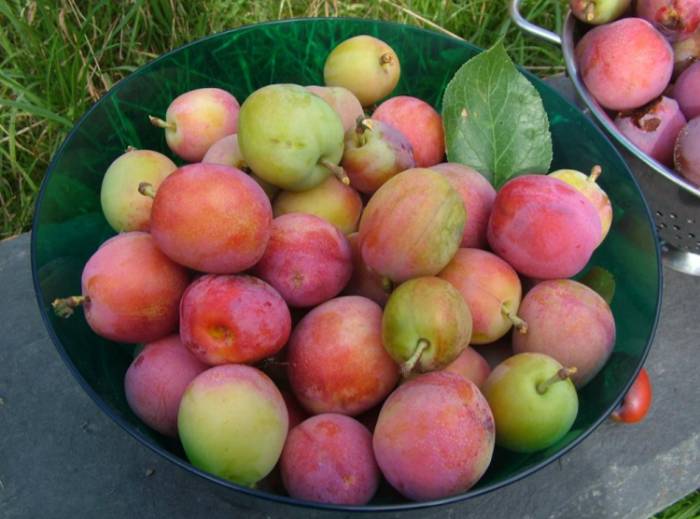
The Vale of Clwyd Denbigh Plum may get EU recognition as a protected food, as the government sends an application for PGI status.
The Denbigh Plum is the name given to the plum grown in the designated geographical area of the Vale of Clwyd in Denbighshire in North Wales, from where it originates.
The plum is the only plum variety native to Wales. It is harvested upon whether the plum is required for culinary or dessert purposes.
The dessert plums have a long growing season which gives the plum more time to fully develop its depth of flavour, which is sub acid and sweet. Most of plums are sold as dessert plums fresh in local markets.
It is this depth of flavour and sweetness which makes the plum unique.
When cooked the depth of flavour intensifies and the natural sweetness of the plum is enhanced. The texture of the fruit melts in the mouth if eaten when warm.
The Denbigh Plum Group
All growers are encouraged to join The Denbigh Plum Group and must obtain their harvested fruit from either individual Denbigh Plum trees, or from newly planted orchards grafted from known specimens originating from the designated area.
The plums are grown in the lime rich, free draining, medium textured deep soils of the area which are fertile and naturally provide the trees with the nutrients they require.
Harvesting is carried out manually, normally taking place 2-3 times over a 10-14 day period during August and September.
The plum is the second government application for a Welsh food to be protected this month. Last week, the government sent off an application for the EU to protect Traditional Welsh Caerphilly cheese.
Protected food
The EU protected food name scheme covers regional and traditional foods whose authenticity and origin can be guaranteed.
To get a product protected under PGI, it must be produced, processed and prepared in one area and have distinct characteristics from this area.
Some UK protected foods include Stilton Blue cheese, Yorkshire Wensleydale cheese, Cornish clotted cream, Scottish wild salmon and Gloucestershire old spots pork.
However, traditional British produce protected by the EU's protected food name scheme could be at risk when the country leaves the EU.
Back in 2016, then-Prime Minister David Cameron warned that farmers would lose the protected status awarded by the EU for produce made in their traditional areas.
It has led the Welsh red meat industry to plea for the creation of a UK-equivalent scheme which recognises British produce.
